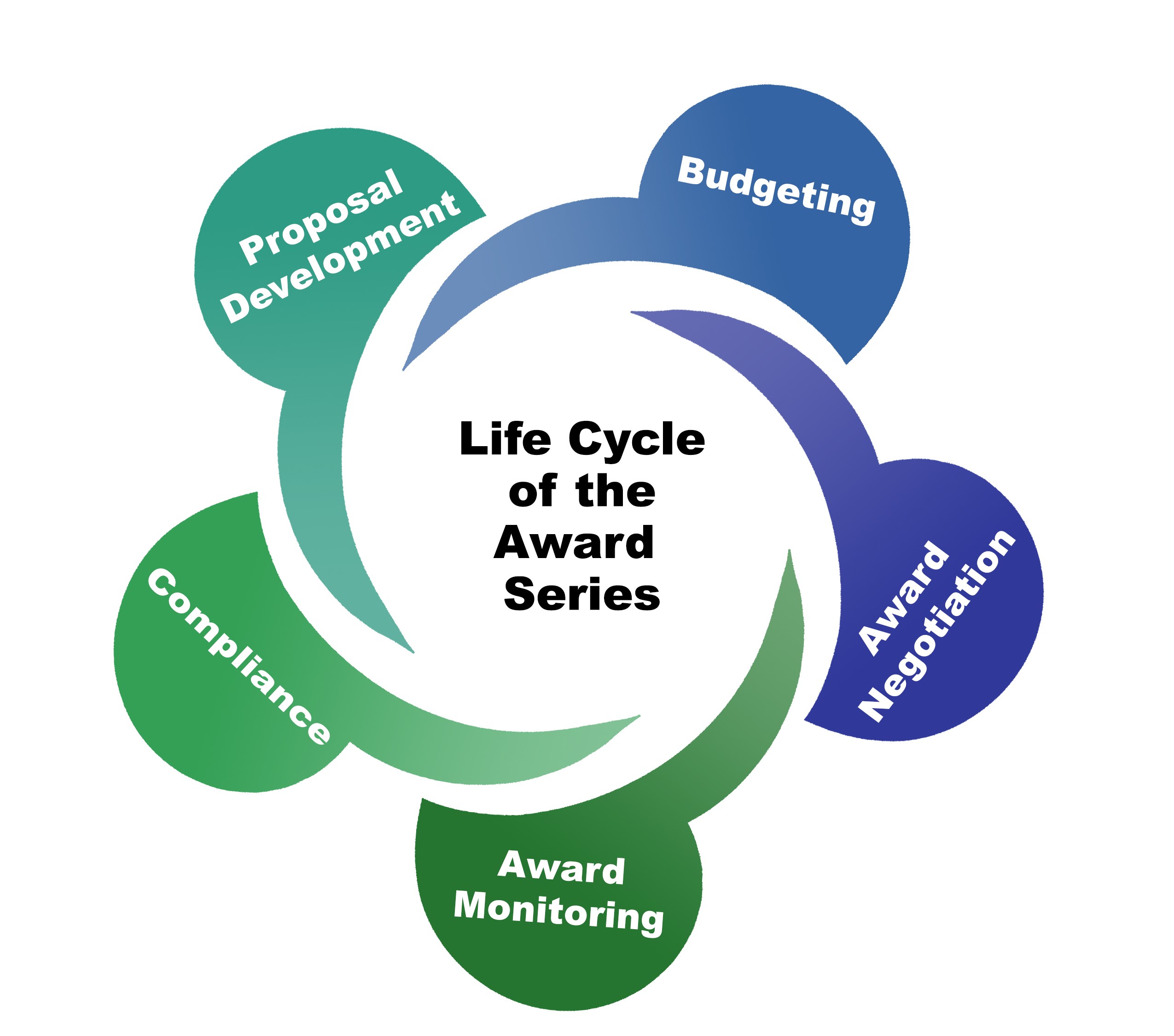Watch and Learn
Watch and learn without ever leaving your campus!
On-demand viewing and a downloadable MP4 file are available within 5-7 business days of the live webinar.
Registrants can post the MP4 on their organization's internal training website for continued on-campus training.
Upcoming Webinars
On Demand Webinars
-
Keeping up to date with federal regulations in 2025 has turned into a full time job. The recent transition from FSRS to SAM.gov for FFATA reporting forced many of us out of our comfort zones and into a new system without much training or notice. Don’t be intimidated! This webinar will discuss the transition from FSRS to SAM,gov, explain the requirements behind this process, outline effective reporting procedures, provide “tried and true” methods for ongoing compliance strategies, and how FFATA ties into changes in the subaward environment. This webinar is designed for the research administrator who is responsible for FFATA Reporting as well as Managers/Directors who oversee this process.
-
Register
- Non-member - $170
- Member - $145
- More Information
-
Register
-
Navigating Data Use Agreements (DUAs) is a critical but often complex part of research administration. From privacy considerations to compliance and institutional risk, understanding how to choose and apply the right DUA is essential for protecting your institution and enabling research success. Join leaders from the FDP Data Stewardship Subcommittee and DTUA Working Group for a practical, engaging session on the fundamentals of DUAs and how to leverage the FDP DTUA templates effectively. Our expert panel will clarify the different FDP DTUA versions, share insights on selecting the right agreement for your project, and discuss common challenges and solutions from the field. Whether you're new to DUAs or looking to deepen your expertise, this webinar will provide actionable tools and knowledge to better support your researchers and manage data-sharing responsibilities.
-
Register
- Non-member - $170
- Member - $145
- More Information
-
Register
-
Unlimited Free Additional Logins for Your Institution!
-
Register
- Non-member - $170
- Member - $145
- More Information
-
Register
-
Research compliance is not a single checkpoint—it’s an ongoing responsibility that spans the entire life cycle of an award. From the proposal stage to project closeout, institutions must ensure transparency, accuracy, and alignment with evolving federal regulations. This session will guide research administrators through critical compliance touchpoints, beginning with disclosure obligations such as Current and Pending (or Other) Support, and concluding with post-award responsibilities such as effort reporting. Participants will gain practical insights for managing disclosures, ensuring appropriate oversight, and navigating emerging regulatory expectations. This webinar will provide a comprehensive overview of compliance obligations from pre-award to closeout. Participants will explore best practices for aligning internal processes with federal regulations, sponsor requirements, and institutional policies.
-
Register
- Non-member - $170
- Member - $145
- More Information
-
Register
-
The world of university research has been inundated with change during 2025. Audits are one of the few constants amidst the turbulence we have experienced. The federal government and other sponsors continue to conduct incurred cost and compliance engagements, and the Single (Uniform Guidance) Audit is still an annual task for most institutions. This webinar will focus on recent audits to help institutions know what to expect from such activities.
-
Register
- Non-member - $170
- Member - $145
- More Information
-
Register
Life Cycle of the Award Series
Video webinar series with supplementary resources for your institution's training and on-boarding programs.
Click here for more information and to register for the series.
Virtual Conference
Can't attend the NCURA Conference? You can still participate in the virtual workshop from your office. Click below to learn more.
-
Academic institutions are committed to maintaining openness and inclusivity in research, whether the collaboration is across campus, the region, or the globe. Institutions must uphold their missions while navigating a changing regulatory landscape and foster due diligence in international activities to mitigate risks and promote principled collaborations. This workshop will provide the latest information on NSPM-33 and relevant CHIPS Act research security requirements. It will offer attendees the opportunity to engage with each other on strategies for preparing for and implementing a research security program. University-wide awareness and engagement are critical for developing an effective program. Workshop leads will discuss how they have garnered institutional support for creating or updating university policy and processes in preparation for meeting NSPM-33 standards and elicit successful strategies from participants. Lastly, panelists and attendees will work in small groups and report out key strategic developments, investments, and resources that their respective universities have made.
-
Register
- Non-member - $320
- Member - $265
- More Information
-
Register
-
This workshop provides a primary basis of understanding of proposals to and awards from the National Science Foundation (NSF). The program is perfect for someone new to research administration, as well as for research administrators seeking to expand their knowledge of federal funding agencies. The curriculum provides an overview of the policies and procedures essential to preparing successful proposals to and managing grant awards from NSF.
-
Register
- Non-member - $320
- Member - $265
- More Information
-
Register
-
This workshop provides a primary basis of understanding of applications to and awards from the National Institutes of Health (NIH). This workshop will give you the basics and we will walk you through the grants process, and give you an overview of key resources and websites you will need to be successful. The program is perfect for someone new to Research Administration, as well as for Research Administrators seeking to expand their knowledge of NIH. The curriculum provides an overview of the policies and procedures essential to preparing successful applications to and managing grant awards from the NIH.
-
Register
- Non-member - $310
- Member - $255
- More Information
-
Register
| Access Date | Quiz Result | Score | Actions |
|---|



